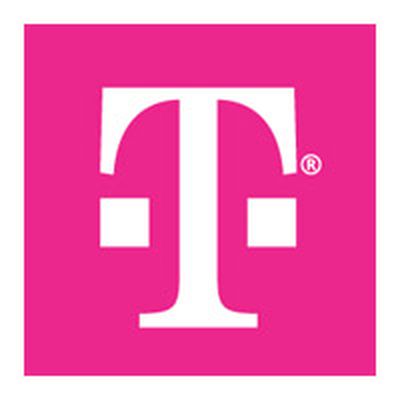T-Mobile to Pay $48 Million For Lack of Transparency About Throttling Data-Heavy Users on Unlimited Plans
 The FCC today announced it has reached a $48 million settlement with T-Mobile, including a $7.5 million fine and $35.5 million in consumer benefits, following an investigation into whether the carrier adequately disclosed speed and data restrictions for its so-called "unlimited" data plan subscribers.
The FCC today announced it has reached a $48 million settlement with T-Mobile, including a $7.5 million fine and $35.5 million in consumer benefits, following an investigation into whether the carrier adequately disclosed speed and data restrictions for its so-called "unlimited" data plan subscribers.
FCC investigators determined that ads and other disclosures from T-Mobile, and its prepaid brand MetroPCS, failed to adequately inform customers about its policy that de-prioritizes the top 3% of its heaviest data users during times of network contention or congestion, resulting in slower network speeds.
“Consumers should not have to guess whether so-called ‘unlimited’ data plans contain key restrictions, like speed constraints, data caps, and other material limitations,” said FCC Enforcement Bureau Chief Travis LeBlanc. “When broadband providers are accurate, honest and upfront in their ads and disclosures, consumers aren’t surprised and they get what they’ve paid for. With today’s settlement, T-Mobile has stepped up to the plate to ensure that its customers have the full information they need to decide whether ‘unlimited’ data plans are right for them.”
As part of the settlement, eligible T-Mobile and MetroPCS subscribers will automatically receive an additional 4GB of 4G LTE data for one month in December and be offered 20% off any single accessory at participating T-Mobile stores with a promo code to be sent via text message in December.
T-Mobile has agreed to update its fine print disclosures to clearly explain its "Top 3 Percent Policy," what triggers it, who may be affected by it, and its impacts on data speeds. T-Mobile will also be required to notify individual customers when their data usage approaches the threshold for de-prioritization.
Popular Stories
iOS 19 will not be available on the iPhone XR, iPhone XS, or the iPhone XS Max, according a private account on social media site X that has accurately provided information on device compatibility in the past.
The iPhone XR, iPhone XS, and iPhone XS Max all have an A12 Bionic chip, so it looks like iOS 19 will discontinue support for that chip. All other iPhones that run iOS 18 are expected...
Apple today released watchOS 11.4, the fourth major update to the operating system that runs on the Apple Watch. watchOS 11.4 is compatible with the Apple Watch Series 6 and later, all Apple Watch Ultra models, and the Apple Watch SE 2.
watchOS 11.4 can be downloaded on a connected iPhone by opening up the Apple Watch app and going to General > Software Update. To install the new software,...
Apple today released new firmware updates for all AirPods 4 and AirPods Pro 2 models. The new firmware is version 7E93, up from the 7B21 firmware that was installed on the AirPods Pro 2 and the 7B20 firmware available on the AirPods 4 and AirPods 4 with ANC.
It is not immediately clear what new features or changes are included in the new firmware, but we'll update this article should we find ...
Apple today released iOS 18.4 and iPadOS 18.4, the fourth major updates to the iOS 18 and iPadOS 18 operating system updates that came out last year. iOS 18.4 and iPadOS 18.4 come two months after Apple released iOS 18.3 and iPadOS 18.3.
Subscribe to the MacRumors YouTube channel for more videos.
The new software can be downloaded on eligible iPhones and iPads over-the-air by going to...
While the iPhone 17 Pro and iPhone 17 Pro Max are not expected to launch until September, there are already plenty of rumors about the devices.
Below, we recap key changes rumored for the iPhone 17 Pro models as of March 2025:
Aluminum frame: iPhone 17 Pro models are rumored to have an aluminum frame, whereas the iPhone 15 Pro and iPhone 16 Pro models have a titanium frame, and the iPhone ...
Visa wants to pay Apple approximately $100 million to be the new payment network for the Apple Card, reports The Wall Street Journal. As of right now, the Apple Card is on the Mastercard payment network, but that is set to change because Apple is ending its partnership with Goldman Sachs.
Both American Express and Visa are vying to replace Mastercard as Apple's card services provider, while...
Apple today seeded the first betas of upcoming iOS 18.5 and iPadOS 18.5 updates to developers for testing purposes, with the software coming just two days after Apple released iOS 18.4 and iPadOS 18.4.
iOS 18.5 and iPadOS 18.5 can be downloaded from the Settings app on a compatible device by going to General > Software Update.
We don't yet know what Apple is introducing in the iOS 18.5...
 The FCC today announced it has reached a $48 million settlement with T-Mobile, including a $7.5 million fine and $35.5 million in consumer benefits, following an investigation into whether the carrier adequately disclosed speed and data restrictions for its so-called "unlimited" data plan subscribers.
The FCC today announced it has reached a $48 million settlement with T-Mobile, including a $7.5 million fine and $35.5 million in consumer benefits, following an investigation into whether the carrier adequately disclosed speed and data restrictions for its so-called "unlimited" data plan subscribers.





















